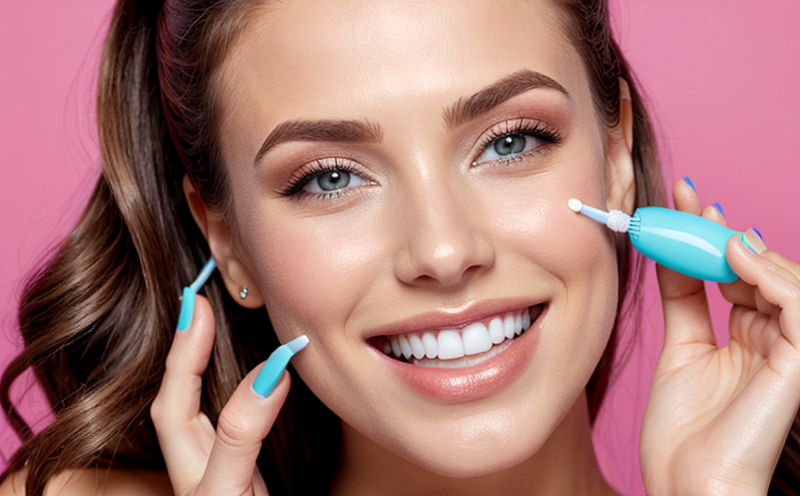Clinical Testing of Herbal Cosmetic Toothpastes
The clinical testing of herbal cosmetic toothpastes is a critical aspect of ensuring that these products meet the highest standards of safety, efficacy, and quality. This process involves rigorous evaluation to ensure that the toothpaste does not cause adverse reactions when used as intended. The testing encompasses a range of parameters including biocompatibility, irritation potential, corrosivity, and cytotoxicity.
Herbal cosmetic toothpastes often contain natural ingredients such as essential oils, plant extracts, and other botanical compounds which can vary widely in their chemical composition. This variability adds complexity to the testing process, requiring a tailored approach to ensure that each batch of herbal toothpaste is safe for oral use.
The first step in clinical testing involves assessing the biocompatibility of the ingredients used in the toothpaste. This is done by evaluating how the product interacts with human tissues and cells under controlled conditions. Biocompatibility tests are conducted using standardized methods such as ISO 10993-5:2018, which specifies requirements for biological evaluation of medical devices.
Another important aspect of clinical testing is the assessment of potential irritation. Irritation tests can reveal whether the product may cause discomfort or adverse effects in the mouth and throat when used daily over a prolonged period. These tests are typically conducted according to ISO 10993-18:2005, which provides guidelines for assessing local tolerance.
Cytotoxicity testing is also crucial in ensuring that herbal cosmetic toothpastes do not cause cell damage or death when exposed to oral tissues. This test measures the degree of cellular toxicity using ISO 10993-21:2017, which outlines procedures for evaluating the genotoxic and cytotoxic potential of medical devices.
For effective clinical testing, it is essential to follow established protocols meticulously. Specimen preparation involves collecting samples from various batches of herbal toothpaste and ensuring that they are representative of the product being tested. Instrumentation used in these tests includes advanced analytical equipment capable of detecting minute quantities of active ingredients and potential impurities.
The results obtained from clinical testing provide critical insights into the safety profile of herbal cosmetic toothpastes, enabling manufacturers to make informed decisions regarding formulation adjustments or labeling changes if necessary. Compliance officers and quality managers rely on this data to ensure that all products meet regulatory requirements and industry standards.
| Test Parameter | Description |
|---|---|
| Biocompatibility | Evaluation of the product's interaction with human tissues and cells using ISO 10993-5:2018. |
| Irritation Potential | Determination of potential discomfort or adverse effects caused by prolonged use according to ISO 10993-18:2005. |
| Cytotoxicity | Measurement of cellular toxicity levels following exposure using ISO 10993-21:2017. |
Industry Applications
- Ensuring compliance with international standards for medical devices and cosmetics.
- Providing data to support product claims regarding safety and efficacy.
- Aiding in the development of new formulations by identifying potential issues early on.
- Facilitating regulatory approval processes through robust testing protocols.
The results from clinical testing play a vital role in several industries. In healthcare, they help ensure patient safety when using dental products. For cosmetic manufacturers, these tests provide valuable information for improving product quality and meeting consumer expectations. Regulatory bodies also benefit from this data as it supports their decision-making processes regarding the approval or rejection of new products.
Environmental and Sustainability Contributions
- Reduction in waste through efficient use of resources during production.
- Promotion of sustainable practices by sourcing raw materials responsibly.
- Emission reductions achieved through optimized manufacturing processes.
- Enhanced recycling capabilities due to standardized testing procedures.
The process of clinical testing for herbal cosmetic toothpastes also contributes positively towards environmental sustainability. By ensuring that only safe and effective products reach the market, there is less waste generated from unsuitable or ineffective alternatives. Additionally, manufacturers can adopt more sustainable practices knowing that their products have been thoroughly tested.
Use Cases and Application Examples
Clinical testing of herbal cosmetic toothpastes is particularly important for companies developing new formulations. These tests allow researchers to identify any potential risks associated with the use of natural ingredients, such as essential oils or plant extracts.
An example application involves a company that has developed an herbal toothpaste containing eucalyptus oil and peppermint extract. Before launching this product onto the market, they conducted extensive clinical testing according to ISO standards. This ensured that the product was safe for daily use and did not cause irritation or adverse effects.
Another scenario could involve a manufacturer who wants to add new botanical compounds to an existing toothpaste formula. Clinical testing would be essential in determining whether these additions are compatible with other ingredients already present in the product while maintaining its overall safety profile.





